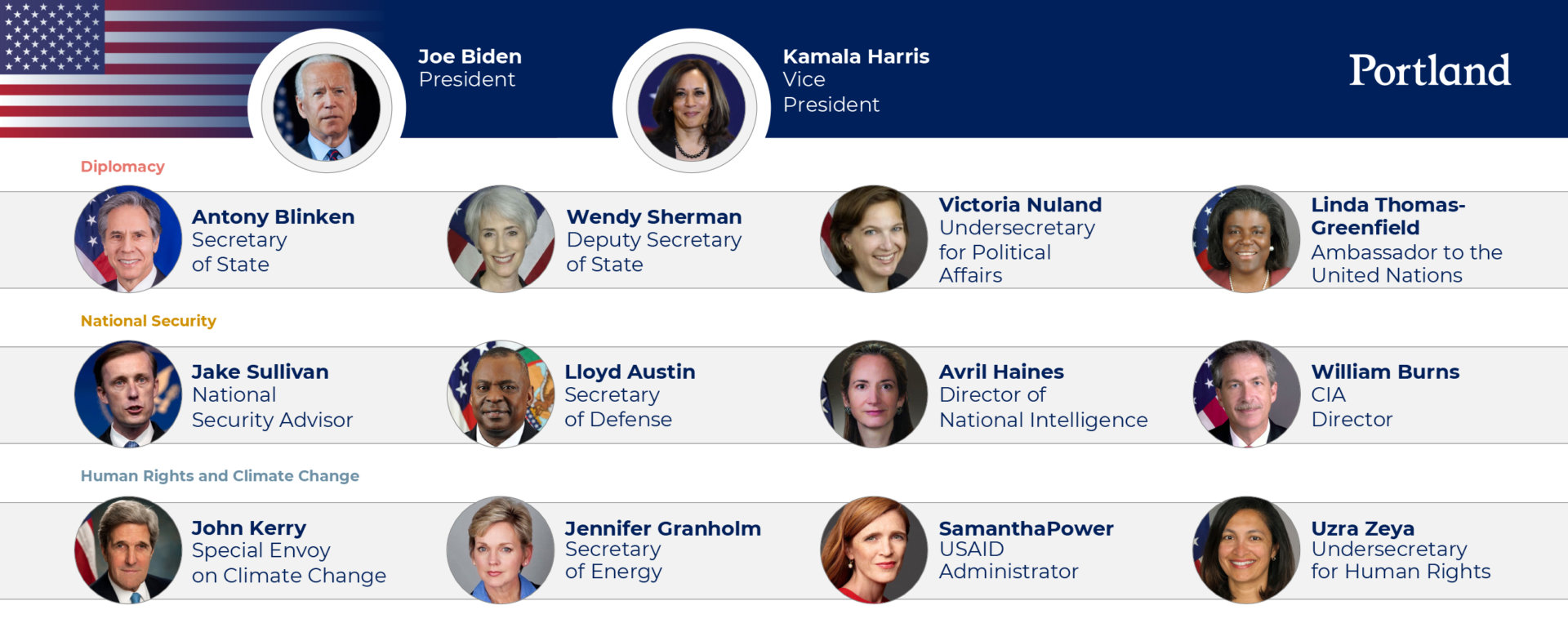As a candidate, President Joe Biden repeatedly spoke of a return to normalcy and promised world leaders that America would be back if he won the White House. What does this mean now that Biden has swapped the campaign trail for the Oval Office?
Climate change is treated as a national security issue; foreign policy focused on ways that benefit the middle class; and after four years of being ignored, human rights serves as a central pillar.
The creation of a special envoy for climate change signals the importance of this issue to Biden and other departments will create roles with a climate change portfolio. While governments will naturally welcome a return to more predictable diplomacy, the ways in which Biden’s foreign policy team puts human rights and climate change at the heart of its international strategy will present the greatest challenges and opportunities for groups looking to work with the US over the next 4 years.
Climate Change
“This executive order I’m signing today also makes it official that climate change will be at the center of our national security and foreign policy.”
President Joe Biden at signing ceremony for executive order on climate change.
WHO TO WATCH WHAT TO WATCH: POLICY
International
In the hours after he was inaugurated, President Biden fulfilled his commitment to rejoin the international climate accord that his predecessor abandoned four years earlier. Biden has committed to net-zero emissions and a 100% clean energy economy by 2050. Environmental targets will become a critical element in trade negotiations and bilateral relations.
Climate change is a global issue so its incorporation into foreign policy decision making is logical, but it is still revolutionary to treat it as a national security issue. Under Biden, adherence to climate objectives will be critical to maintaining strong ties with the US. Biden will point to the melting of the Arctic, which has increased Russia’s ability to ship goods through the Arctic ocean instead of a more circuitous route.
Rising sea levels threatens pacific islands, which the US Navy uses to resupply its vessels in the region. Coastal protection measures in addition to the wider goal of stopping sea levels from rising will be a core part of America’s naval strategy in the pacific to counter China’s growing assertiveness in the region.
On a geopolitical level, fighting climate change is the new arms reduction. The US and Soviet Union would assert that the other was the belligerent and posed a greater threat to world peace. Arms reduction talks enabled each side to score significant diplomatic wins while also making the world safer. Biden wants the US to lead on fighting climate change seeing it as an opportunity for the US to take global leadership in the 21st century, in the same way that opposition to fascism and communism positioned America as the world’s hegemon in the 20th century.
Domestic
While president’s generally have free reign internationally, domestically Biden will be caught between a rock and a hard place with progressives calling for a trillion dollar green new deal, and conservatives opposing additional spending on the grounds of fiscal prudence. Expect Biden’s infrastructure bill to feature funding for green energy projects as well as environmental standards on construction projects for housing and transportation. This will be a way of circling the square, simultaneously funding green projects and Republican priorities.
The Biden plan includes several key elements to improving energy efficiency, from investments in buildings that include 4 million retrofits and 1.5 million new homes to achieving a zero-carbon power sector by 2035. The energy crisis in Texas underscored the need for upgrading the energy grid including microgrids. Biden is also proposing to extend existing tax incentives like credits to businesses and American households alike. This includes credits to private power developers to build more wind and solar-powered plants and a continuation of the $7,500 tax credit for buyers of electric cars.
Key Events
- Climate Summit – April 22, 2021
- United Nations General Assembly – September 14, 2021
- COP26 – November 1-12, 2021
Challenges and Opportunities
Biden’s climate czar Gina McCarthy is expected to bear down on cabinet secretaries to enact rules like stricter limits on auto emissions at the Environmental Protection Agency (EPA) and requirements for corporations to disclose financial risk from global warming at the Securities and Exchange Commission. Companies should get ahead of the curve through self-reporting.
This means that it’s equally as important to spell out your business’ environmental protection practices as it is for you to tackle internal or industry challenges your organization faces as it strives to become cleaner and greener. Make it a point to thread these internal actions and objectives into your external communications.

